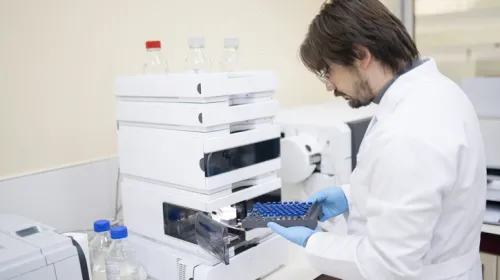Spotlight on... Drug checking

What is drug checking?
Drug-checking services provide individuals who use drugs with information on the chemical content of their drugs as well as advice and, sometimes, counselling or brief interventions. Service priorities vary and may include information collection, harm reduction and early warning. The analytical techniques used also vary: from sophisticated technology that is able to provide information on strength and content of a wide variety of substances, such as high-performance liquid chromatography and Fourier transform infrared spectroscopy, to methods that simply show the presence or absence of a particular drug, such as thin-layer chromatography and reagent test kits.
The sites at which testing occurs include drop-in services with fixed laboratories, where individuals and organisations can submit drugs for testing (with results days later), and mobile laboratories at festivals, clubs or drug consumption rooms, which provide almost immediate results.
An important aspect of drug-checking services is how the results are communicated to individuals and whether this is accompanied by harm reduction advice and brief interventions.
An illustration of the range of drug-checking technologies available and their relative accuracy and reliability

What is known about the effectiveness of drug checking?
Drug-checking services remain controversial in some EU countries. They have provided a valuable contribution to early warning systems and the monitoring of drug availability in the European Union. However, evidence of their impact on risk behaviours remains limited. Advocates argue that information from drug-checking services has had a positive public health impact and that drug checking can potentially reduce harm by engaging with people who use drugs recreationally, who would otherwise remain unreachable; identifying drugs that contain unwanted or unknown chemicals allowing an early public health response; and helping avoid overdose or deaths by providing information on potency or adulteration. On the other hand, critics suggest that drug checking may give a false feeling of safety because the reliability of some of the testing approaches used is questionable or limited; may give the impression that drug taking is normal and acceptable behaviour, potentially undermining prevention efforts; and that clients will go ahead and use their drugs regardless of results.
Any assessment of the arguments, either those set forth by advocates or critics, is hampered by the lack of robust studies and the difficulties in generalising given the very different approaches and models used. Nevertheless, given the growing importance of synthetic drugs in the European market, including high potency synthetic opioids, any response that may reduce risks merits careful consideration and evaluation.
Drug checking in Europe: challenges for the future
The impact of different models of drug-checking services should be evaluated in order to identify the best models for different intervention priorities (e.g. early warning, harm reduction, outreach). The behavioural impact of drug checking is particularly in need of research. This research needs to pay particular attention to risk communication, and a behavioural insights approach may be useful.
The handling of controlled substances raises legal questions, and many countries do not accept drug checking as a reason for a legal exemption to drug control laws, whatever the purpose. This issue extends to people who use drug-checking services, staff and proprietors of recreational settings where there is on-site testing. Close collaboration with law enforcement agencies is always recommended.
Changes in drug use and markets pose challenges for drug checking and associated responses:
-
Accurate drug checking requires advanced and sophisticated laboratory equipment, although simpler and cheaper techniques are being developed. In addition, analysing new psychoactive substances requires knowledge of their chemistry and spectral databases. Co-ordination between drug-checking, academic and forensic services could maximise the value obtained from investment in these services.
-
Even when substances can be identified, the risks of using them may still be unknown. Polydrug use further complicates the provision of advice linked to drug checking because interactions between drugs are much less predictable than the risks of using one drug alone.








